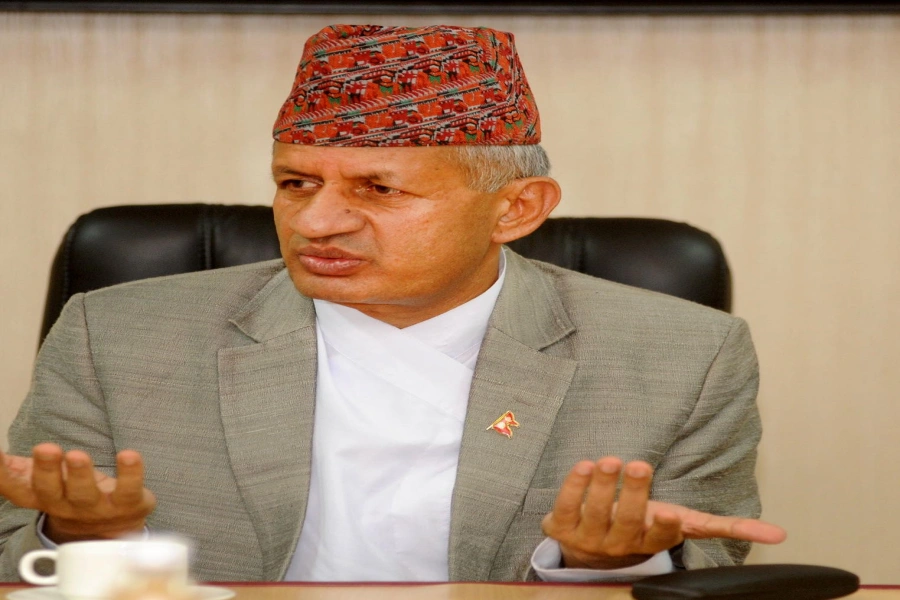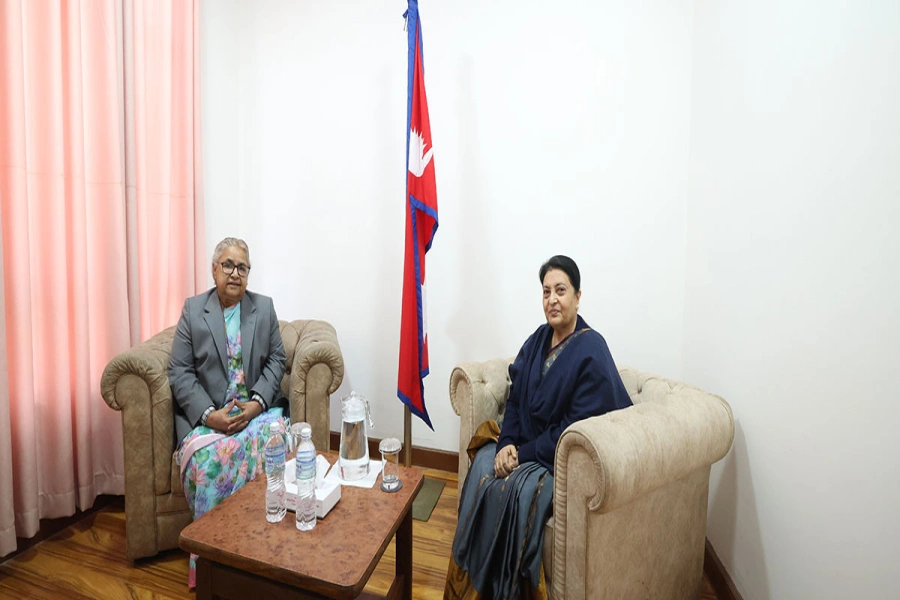KATHMANDU, June 16: The Federation of Nepalese Chamber of Commerce and Industries (FNCCI) has demanded the government to reconsider the proposed 2 percent luxury tax and 13 percent value-added tax (VAT) on gold and precious stones including diamonds in the budget for Fiscal Year (FY) 2025/26.
On Sunday, FNCCI President Chandra Prasad Dhakal held discussions on this issue with representatives from the Nepal Gem & Jewellery Association (NEGJA), the Federation of Nepal Gold Silver Gem and Jewellery Associations (FNGSGJA), at the FNCCI’s secretariat. The FNCCI called these taxes impractical.
The FNCCI had previously put forth a formal stance in response to the budget, stating that the luxury tax on gold and the VAT on diamonds and other precious stones would negatively impact businesses and employment.
Revised interest rate corridor system introduced

The NEGJA, the FNGSGJA, and the Federation of Nepal Gold and Silver Dealers' Associations (FENEGOSIDA) have been demanding a review of these tax provisions, warning that they could severely damage the business sector. Representatives from all three organizations urged the FNCCI to take necessary action on this matter.
FNCCI President Dhakal acknowledged that the issues raised by the business community are relevant and assured that the federation will take appropriate steps.
Kisan Sunar, President of the NEGJA; Suman Man Tamrakar, President of the FNGSGJA; and Diyesh Ratna Shakya, Acting President of the FENEGOSIDA, stated that the proposed tax provisions on gold, silver, diamonds, gemstones, and handicrafts businesses would seriously affect both business operators and general consumers.
President Sunar and the FENEGOSIDA claim that the proposed 2 percent luxury tax in the budget will create a multiple taxation system (round-tripping) in gold trading, forcing consumers to pay up to 6 percent additional costs. Both federations believe this will lead to a market slowdown in gold, disrupt the buyback system, and reduce consumer confidence.
The 13 percent VAT imposed on diamonds and precious stones is expected to increase the price of gold jewelry by up to 19 percent. Business stakeholders argue that this will lead to a rise in jewelry prices, encourage illegal imports, impose a heavy financial burden on consumers, and negatively impact the livelihoods of around 25,000 entrepreneurs and over 1.5 million artisans and workers.
Both federations have demanded that the government scrap the 2 percent luxury tax on gold and gold jewelry, cancel the 13 percent VAT on diamond- and gemstone-studded ornaments, and introduce long-term laws, regulations, and policies to promote the gold and silver trade.
Similarly, they have demanded that a detailed study be conducted on the potential impact of tax structure changes on businesses and employment before implementing any reforms. They have also called for the customs duty to be fixed at 6 percent, similar to neighboring India, the establishment of an internationally recognized laboratory for quality certification, and the removal of the 2.5 percent TDS imposed on export shipments.







































